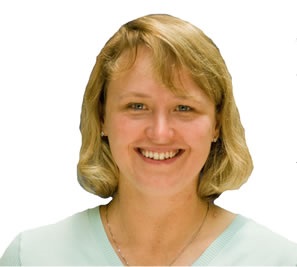We observed that, over the past two decades, there has been an increase in the incidence of testicular cancer in Hispanic American adolescents and young adults (AYAs) between 15 and 39 years of age.
This increase is seen in both major subtypes of testicular cancer and affects Hispanic AYA patients with all stages of disease at the time of diagnosis.
Did you find an increase in other men?
No comparable increase was observed in non-Hispanic white AYAs or in older American men regardless of Hispanic ethnicity.
Between 1992 and 2010, the incidence of testicular cancer in AYA Hispanics has increased 58% in contrast to just 7% in non-Hispanic white AYAs.
Which populations are at the highest risk for testicular cancer in the United States?
Hispanic Americans comprise the fastest growing ethnic group in the United States. Until only recently, cancer incidence data for this population has been too sparse to accurately analyze testicular cancer trends among Hispanic men. Our study presents novel evidence of a significant trend in cancer incidence among Hispanics.
Testicular cancer strikes non-Hispanic white men more commonly than other ethnic groups. The incidence of testicular cancer in non-Hispanic white men is known to have increased in the 1980s and then to have leveled off since the early 1990’s.
In contrast, the incidence of testicular cancer in Hispanic white men has been increasing steadily since 1992.
If these current trends continue, the rate of testicular cancer among Hispanic Americans will outpace that of non-Hispanic white men by the end of our current decade. This would be the first time that the testicular cancer rate in an ethnic minority group has surpassed that of non-Hispanic whites.
What should clinicians and patients understand about testicular cancer in Hispanics?
The increasing rate of testicular cancer in AYA Hispanic males, combined with the rapid expansion of the Hispanic population in the United States, is projected to have a measurable impact on the United States healthcare system.
Clinicians should keep in mind that testicular cancer is not solely a disease of non-Hispanic white men but is increasingly a disease of Hispanic men as well.
Hispanic Americans are the fastest growing population in the United States.
Due to the combination of increasing population as well as rising testicular cancer incidence in Hispanics, clinicians treating testicular cancer will be seeing more and more patients of Hispanic heritage.
Men or women of any age or ethnicity should remember that if they detect an unexplained lump or bump on their body, they should see their doctor promptly.
What recommendations do you have for future research as a result of this study?
This study reports a novel trend in cancer incidence but does not assess the causes of the trend. Future studies should corroborate these findings in other countries that have substantial Hispanic populations.
Subsequent research should also investigate the etiology of the increase in cancer incidence in Hispanic AYAs.
The cause of the increase may be multi-factorial. Testicular cancer risk in Hispanic white AYAs may potentially be mediated by nutritional factors such as adult height.
Greater adult height is a known risk factor for testicular cancer, and adult height has increased rapidly in the US Hispanic white population over the past several decades.
Changing patterns of modifiable lifestyle choices such as the reported increase in marijuana use among Hispanic adolescents may also affect testicular cancer incidence.
Where can readers find more information?
Chien, F. L., Schwartz, S. M. and Johnson, R. H. (2014), Increase in testicular germ cell tumor incidence among Hispanic adolescents and young adults in the United States. Cancer. doi: 10.1002/cncr.28684
About Dr Rebecca Johnson
 Rebecca Johnson, MD, is an oncologist specializing in adolescents and young adults (AYAs). She is the founder of the nationally recognized Adolescent and Young Adult (AYA) oncology program at Seattle Children’s Hospital.
Rebecca Johnson, MD, is an oncologist specializing in adolescents and young adults (AYAs). She is the founder of the nationally recognized Adolescent and Young Adult (AYA) oncology program at Seattle Children’s Hospital.
Her medical training includes Pediatrics, Internal Medicine, Genetics and Pediatric Oncology. Her research interests include cancer epidemiology, and she and colleagues recently reported that the incidence of metastatic breast cancer is increasing in women under 40 years of age.
She is also interested in fertility preservation, as well as the use of new media to facilitate education, psychosocial support and medication adherence in AYA oncology patients.
Johnson participated in the development of the NCCN AYA Oncology Care Guidelines and also the NCCN Guidelines for AYA Cancer Patients. She served as co-chair of the steering committee of the LIVESTRONG Young Adult Alliance, Vice President of the Interim Board of Directors and later on the Emeritus Board of Directors of Critical Mass: Young Adult Cancer Alliance.
She is a member of the American Society of Clinical Oncology Integrated Media and Technology Committee and the advisory boards for both the Children’s Oncology Group AYA Committee and the Canadian Partnership for Cancer AYA Task Force.